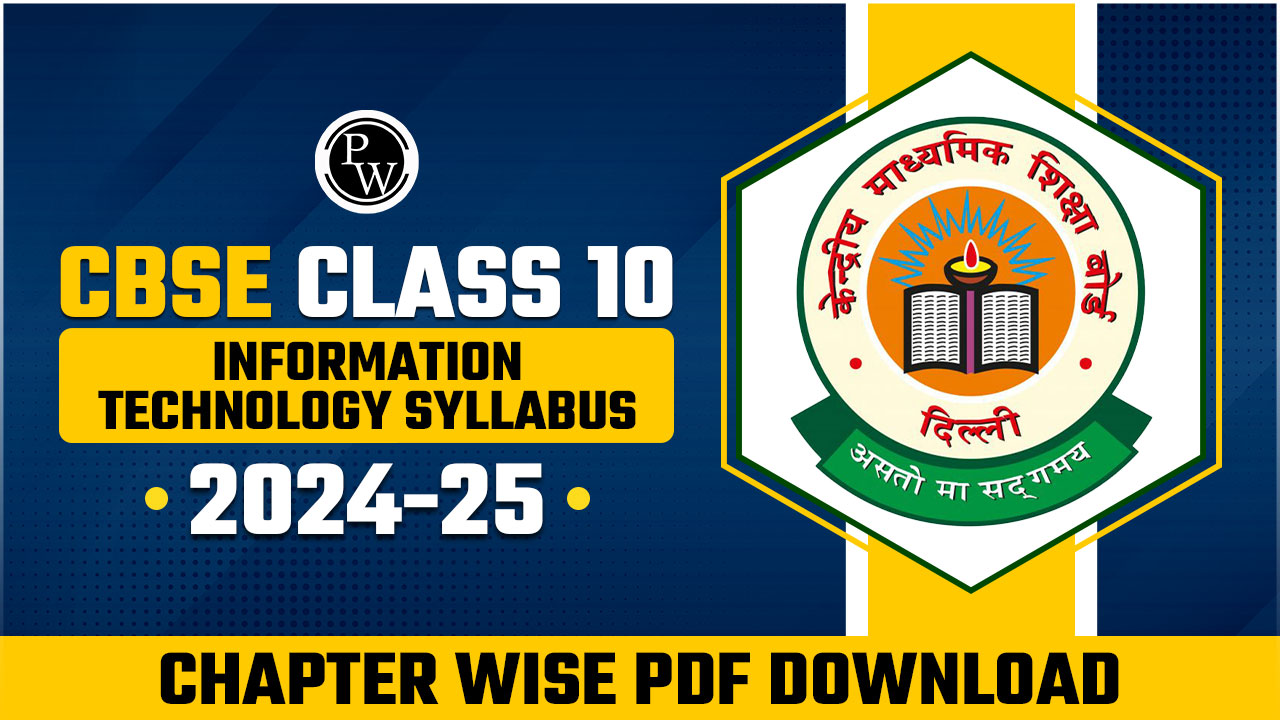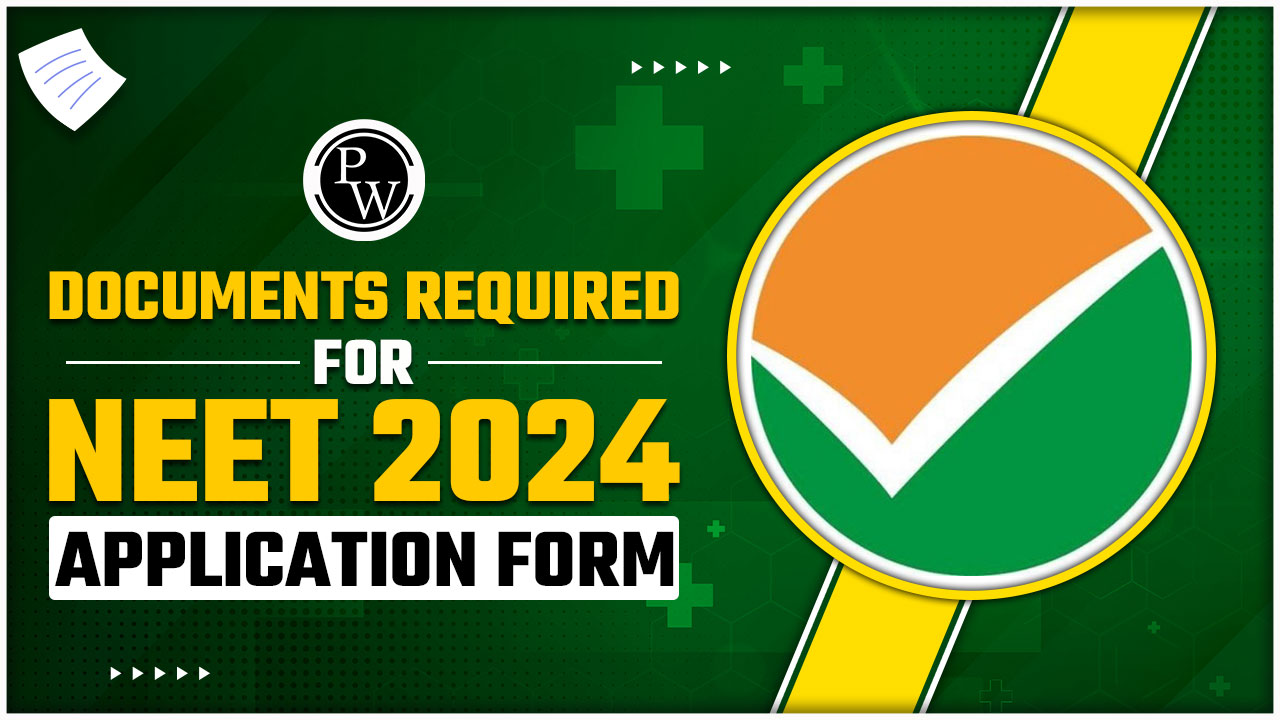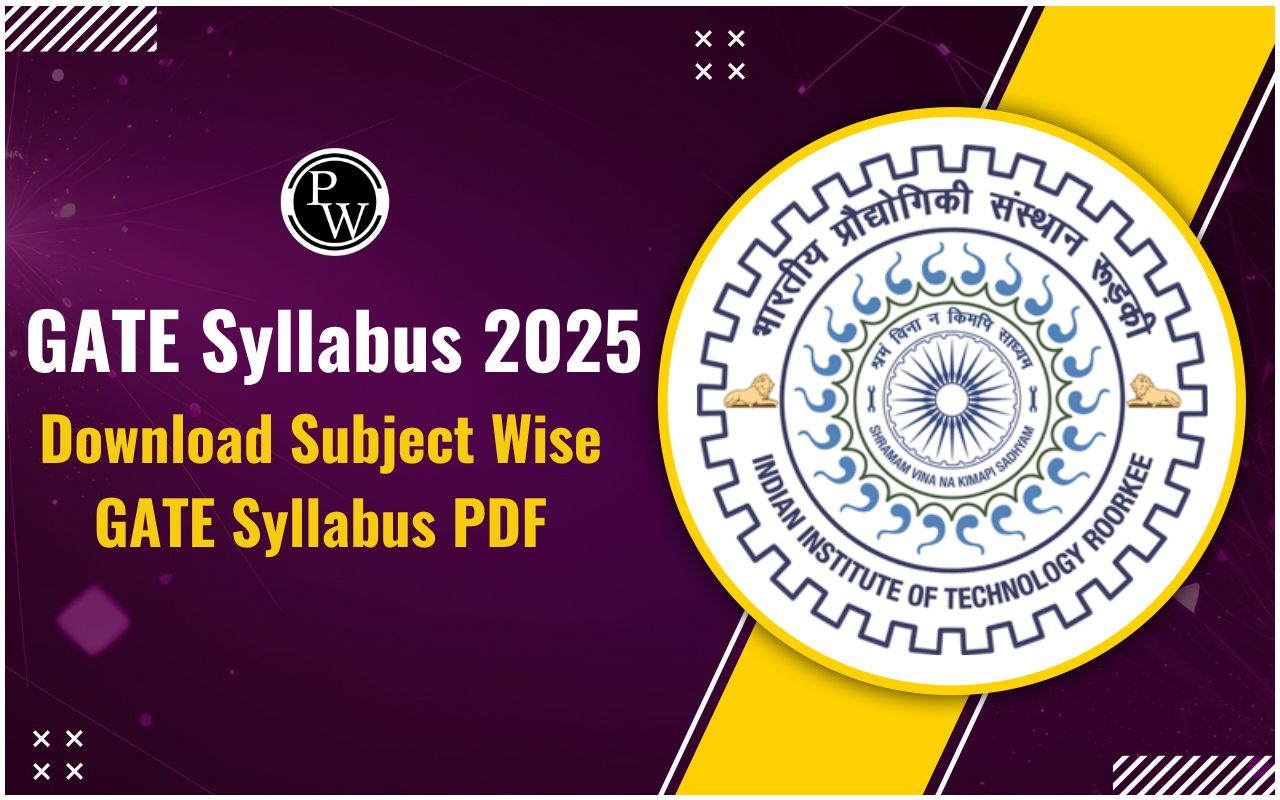CBSE Class 10 Information Technology Syllabus 2024-25, Chapter Wise PDF Download

CBSE Class 10 Information Technology Syllabus 2024-25: In today's world, software and electronics drive nearly every aspect of life, simplifying tasks and improving our daily experiences. To help students understand the basics of Information Technology, CBSE has thoughtfully designed the Class 10 IT syllabus.
Broken down into four parts, this syllabus provides a clear pathway for students to grasp essential concepts. Through organized chapters and activities in the Term 2 syllabus, CBSE aims to introduce students to key skills like employability, sustainability, and IT basics, which are crucial for those considering a career in IT. Scroll down to learn more about CBSE Class 10 Information Technology Syllabus 2024-25.
CBSE Class 10 Information Technology Syllabus 2024-25
The CBSE Class 10 Information Technology Syllabus for 2024-25 provides a well-rounded exploration of IT essentials. Split into different parts, it covers communication, self-management, advanced tools like databases and web apps, and practical applications through projects and field visits. Check out the CBSE Class 10 Information Technology Syllabus 2024-25 below:-
|
CBSE Class 10 Information Technology Syllabus 2024-25 |
|
|
Part |
Chapter |
|
CBSE Class 10 Information Technology Syllabus Part A |
Chapter 1 - Communication Skills-II |
|
Chapter 2 - Self-Management Skills-II |
|
|
Chapter 3 - ICT Skills-II |
|
|
Chapter 4 - Entrepreneurial Skills-II |
|
|
Chapter 5 - Green Skills-II |
|
|
CBSE Class 10 Information Technology Syllabus Part B |
Chapter 1 - Digital Documentation (Advanced) |
|
Chapter 2 - Electronic Spreadsheet (Advanced) |
|
|
Chapter 3 - Database Management System |
|
|
Chapter 4 - Web Applications and Security |
|
|
CBSE Class 10 Information Technology Syllabus Part C |
Practical Work |
|
CBSE Class 10 Information Technology Syllabus Part D |
Project Work/Field Visit |
Things to Remember for CBSE Class 10 Information Technology Syllabus 2024-25
-
Syllabus Structure
-
The syllabus is divided into two main parts to cover different types of skills.
-
Part A focuses on skills that are essential for employability, while Part B concentrates on subject-specific skills.
-
Part A
-
Part A encompasses five units, each targeting specific employability skills:
-
Communication Skills: Enhancing verbal and written communication abilities.
-
Self-Management Skills: Developing skills related to time management, organization, and personal development.
-
ICT Skills: Learning to effectively use information and communication technologies.
-
Entrepreneurial Skills: Understanding the basics of entrepreneurship and fostering innovative thinking.
-
Green Skills: Building awareness and knowledge about environmental sustainability practices.
-
Part B
-
Part B comprises four units aimed at enhancing subject-based skills:
-
Advanced Digital Documentation: Learning advanced techniques for creating and managing digital documents.
-
Advanced Electronic Spreadsheet: Gaining proficiency in using electronic spreadsheets for data analysis and presentation.
-
Final Exam
-
The final exam for the 2024–2025 academic session will feature three types of questions:
-
Subjective questions: These require detailed written responses and account for 40% of the total exam grade.
-
Objective questions: These include formats like True or False, Match the Columns, and Fill in the Blanks, contributing 20% to the total grade.
-
Competency-based questions: These assess students' ability to apply their knowledge and skills to solve real-world problems, making up the remaining 40% of the grade.
How to Prepare CBSE Class 10 Information Technology Syllabus 2024-25
1. Understand the Syllabus: Understanding the syllabus is the first step towards effective preparation. Break down the syllabus into its components, namely Part A (employability skills) and Part B (subject-based skills). Take note of the topics covered in each section to ensure comprehensive coverage.
2. Gather Study Materials: Gather all necessary study materials, including textbooks, reference materials such as from the PW Store, and any additional resources recommended by your teachers or the CBSE board. Ensure access to relevant software applications or tools needed for practical exercises and projects.
3. Create a Study Schedule: Develop a study schedule that suits your routine. Allocate specific time slots for Information Technology study sessions each day or week, taking into account your other academic commitments. Divide the syllabus into manageable segments and assign time accordingly to cover each topic thoroughly.
4. Focus on Conceptual Understanding: Focus on understanding the theoretical concepts deeply. Read through the topics carefully, making sure you grasp the underlying principles and processes. Take concise notes while studying to reinforce your understanding and facilitate revision later on.
5. Practice Practical Skills: Regularly practice using software applications and tools related to digital documentation, electronic spreadsheets, multimedia presentations, etc. Experiment with different features and functionalities to become proficient and comfortable with the software.
6. Solve Sample Papers and Previous Year Question Papers: Practice solving sample papers and previous year question papers to familiarise yourself with the exam pattern and types of questions asked. Analyse your performance to identify areas that need improvement and focus your revision accordingly.
7. Work on Projects and Assignments: Engage in practical projects and assignments that require you to apply your knowledge and skills to real-world scenarios. Collaborate with classmates or seek guidance from teachers if needed to enhance your learning experience.
8. Clarification is Must: Don't hesitate to ask your teachers or peers if you have any doubts or questions regarding the syllabus topics. Actively participate in classroom discussions and seek clarification on any unclear concepts to ensure a thorough understanding.
9. Review and Revise Regularly: Schedule regular revision sessions to consolidate your learning and reinforce key concepts. Utilize revision techniques such as flashcards, mind maps, and summarization to aid in the retention and recall of information.
10. Stay Updated and Stay Motivated: Stay updated with any changes or announcements related to the syllabus or exam pattern. Maintain a positive attitude towards your studies and set achievable goals for yourself. Celebrate your progress and stay motivated throughout your preparation journey.
CBSE Class 10 Information Technology Syllabus 2024-25 FAQs
Q1. What is the CBSE Class 10 Information Technology Syllabus for 2024-25?
Ans. The CBSE Class 10 Information Technology Syllabus for 2024-25 covers two main parts: Part A, focusing on employability skills, and Part B, covering subject-based skills such as digital documentation and electronic spreadsheets.
Q2. What are the key topics under Part A of the syllabus?
Ans. Part A of the syllabus includes key topics such as Communication Skills, Self-Management Skills, ICT Skills, Entrepreneurial Skills, and Green Skills.
Q3. What subjects are covered in Part B of the syllabus?
Ans. Part B of the syllabus covers subjects like Advanced Digital Documentation and Advanced Electronic Spreadsheets, which delve into more specialized IT skills.
Q4. How is the final exam structured for CBSE Class 10 Information Technology?
Ans. The final exam consists of three types of questions: subjective, objective, and competency-based. Subjective questions carry 40% weightage, objective questions carry 20% weightage, and competency-based questions carry 40% weightage.
Q5. What are competency-based questions?
Ans. Competency-based questions test students' ability to solve real-world problems using their knowledge, skills, experiences, and intellect, allowing for a practical application of the concepts learned.








